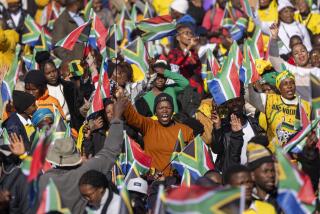 Within the global imaginary, reconciliation and South Africa are intimately linked. Indeed, some have claimed that reconciliation is South Africa’s greatest ‘export’, owing to the international influence of South Africa’s 1996 Truth and Reconciliation Commission (TRC) (Maluleke 2005, 119). An integral part of the South African democratic nation-building strategy, the TRC – and its surrounding discourses of peacebuilding, unity, forgiveness, healing, truth-telling, and transitional justice – has been held up as a model to the world. Similar national commissions have been created throughout Africa since 1996, for example in Rwanda (1999), Nigeria (1999), Sierra Leone (1999), the Democratic Republic of Congo (2002), Ghana (2002), Kenya (2008), Liberia (2005), Mauritius (2009), Burundi (2014), and Zimbabwe (2018). Often the goal of national commissions is to address injustices and gross human rights violations perpetrated during civil wars and political crises, many of which involve violent mobilization of ethnic, racial, and religious differences. Commissions also provide recommendations for redress to the state.1
Within the global imaginary, reconciliation and South Africa are intimately linked. Indeed, some have claimed that reconciliation is South Africa’s greatest ‘export’, owing to the international influence of South Africa’s 1996 Truth and Reconciliation Commission (TRC) (Maluleke 2005, 119). An integral part of the South African democratic nation-building strategy, the TRC – and its surrounding discourses of peacebuilding, unity, forgiveness, healing, truth-telling, and transitional justice – has been held up as a model to the world. Similar national commissions have been created throughout Africa since 1996, for example in Rwanda (1999), Nigeria (1999), Sierra Leone (1999), the Democratic Republic of Congo (2002), Ghana (2002), Kenya (2008), Liberia (2005), Mauritius (2009), Burundi (2014), and Zimbabwe (2018). Often the goal of national commissions is to address injustices and gross human rights violations perpetrated during civil wars and political crises, many of which involve violent mobilization of ethnic, racial, and religious differences. Commissions also provide recommendations for redress to the state.1
Haunted by Reconciliation? The Persistence of Theologies of Reconciliation in Contemporary South Africa

Connect With Us
Mailing Address
Boniuk Institute
6100 Main Street, MS350
Houston, TX 77005
boniukinstitute@rice.edu
rplc.rice.edu
Press Inquiries
Avery Franklin
Senior Media Relations Specialist
averyrf@rice.edu
